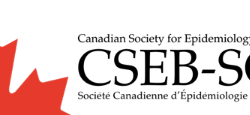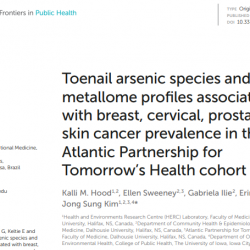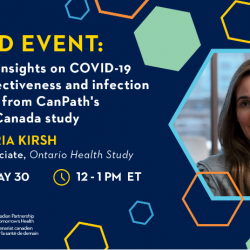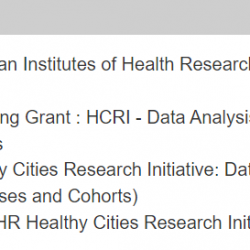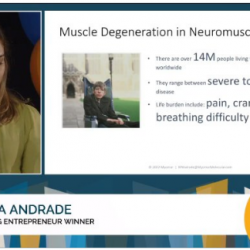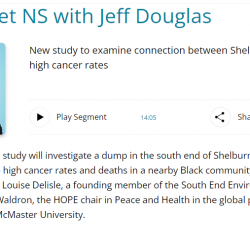We’re so glad to have representation from Atlantic PATH, CARTaGENE, Manitoba Tomorrow Project, Ontario Health Study, and CanPath at the Canadian Society for Epidemiology and Biostatistics Conference in Halifax this week! CanPath and the regional cohorts are well represented in the following sessions: Monday, June 26, 2023 Workshop 1 – Mentorship for Junior Faculty and Funding Opportunities: How to Break into the Game as a Junior Faculty Member [Dr. Vikki Ho, Scientific Co-Director, CARTaGENE] Workshop 3 – Data Repositories in Canada: Overview and Data Access 101 [Dr. Robin Urquhart, Scientific Director, Atlantic PATH] Tuesday, June 27, 2023 Concurrent Sessions B5: Lifecourse and Chronic Disease Epidemiology – Leveraging population health cohorts to identify cancer biomarkers in blood up to seven years prior to diagnosis Presenter: Nicholas Chang, PhD candidate, OICR Poster Session The Impact of Alcohol Consumption and Single Nucleode Polymorphisms on the High Rates of Colorectal Cancer in Atlantic Canada Presenter: Carlee Feinstein, Research Assistant, St. FX Authors: Carlee A Feinstein, Derrick G Lee, Allison Walsh, Tiffany S Bondo The Manitoba Tomorrow Project: A Canadian Cohort Presented by: Dr. Travis Hrubeniuk, Project Lead, Manitoba Tomorrow Project Authors: Travis Hrubeniuk, Sachin Katyal, Donna Turner Canadian Partnership for Tomorrow’s Health (CanPath): Celebrang Compleng the Provincial Map and Cross-Province Data Linkage Presented by: Dr. John McLaughlin, Executive Director, CanPath Authors: John McLaughlin, Riaz Alvi, Philip Awadalla, Parveen Bhatti, Trevor Dummer, Jason Hicks, Vikki Ho, Grace Shen-Tu, Kimberly Skead, Ellen Sweeney, Donna Turner, Robin Urquhart, Jennifer Vena Examining the impact of inflammatory bowel disease on colorectal cancer risk in Atlantic Canada Presented by: Livia Clarke, Research Assistant, Dalhousie Medical School / St. FX Authors: Livia Clarke, Derrick Lee, Ellen Sweeney The Impact of Abnormal Sleep and Circadian Disruption on Atlantic Canada’s High Rate of Colorectal Cancer Presented by: Alison Walsh, Research Assistant, St. FX Authors: Alison J Walsh, Carlee A Feinstein, Tiffany S Bondoc, Megan K MacGillivray, Derrick G Lee The Ontario Health Study (OHS) Presented by: Sarah Salih, Data Analyst, Ontario Health Study Authors: Victoria Kirsh, Kimberly Skead, Kelly McDonald, Nancy Kreiger, Julian Lile, Karen Menard, John McLaughlin, Sutapa Mukherjee, Lyle Palmer, Vivek Goel, Mark Purdue, Sarah Salih, Philip Awadalla Smoking, aberrant DNA methylaon of the F2RL3 and AHRR genes, and lung cancer risk Presented by: Vikki Ho, Scientific Co-Director, CARTaGENE Authors: Alice Nguyen, Anita Koushiki, Laura Pelland-St. Pierre, Michael Pham, Romain Pasquet, Sherryl Tauylor, Delphine Bosson-Rieutort, Vikki Ho The influence of occupaonal risk factors on DNA methylaon in the AHRR and F2RL3 genes Presented by: Laura Pelland-St-Pierre Authors: Michael Pham, Laura Pelland-St-Pierre, Alice Nguyen, Romain Pasquet, Sherryl Taylor, Delphine Bosson-Rieutort, Anita Koushik, Vikki Ho Wednesday, June 28, 2023 Concurrent Session C5: Cancer Epidemiology II – Exploring Environmental Exposure to Arsenic and Cancer Risk in the Atlantic PATH Cohort using Toxicological and Machine Learning Methods Presenter: Dr. Ellen Sweeney, Research Director, Atlantic PATH Please feel free to contact Atlantic PATH, CanPath or any of the regional cohorts to learn more about these projects!


